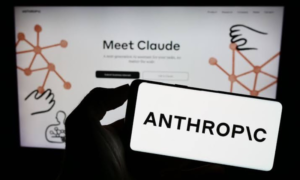Authors sue anthropic for misusing copyrighted works in AI
The lawsuit, filed in a California federal court, alleges that Anthropic unlawfully used copyrighted works, including those of the three plaintiffs, to train its AI chatbot, Claude.

Three writers, Andrea Bartz, Charles Graeber, and Kirk Wallace Johnson, have filed a class-action lawsuit against the AI startup Anthropic, alleging that it trained its AI chatbot, Claude, on unlicensed versions of their novels, as well as hundreds of thousands of others. The authors claim that Anthropic created its multibillion-dollar company by illegally using copyrighted material without permission or compensation. This complaint is part of a larger wave of legal action against tech companies, including OpenAI and Meta, over similar copyright violations in AI training.
The complaint especially states that Anthropic employed a controversial dataset known as “The Pile,” which contains a large number of copied documents. The writers are seeking monetary damages and a court injunction to prevent Anthropic from further misusing protected content.
The writers claim that this unlawful use of their work is an obvious infringement of copyright law. In their case, they describe Anthropic’s acts as “strip-mining human expression and ingenuity” to feed a multibillion-dollar industry. They are seeking unspecified monetary damages and a court order to permanently prevent Anthropic from further misusing copyrighted content.
The case against Anthropic is not an isolated event. It is part of an increasing number of legal challenges to AI businesses accused of copyright infringement. Other large tech companies, such as OpenAI and Meta, have faced similar dispute resolution. These lawsuits often involve the use of copyrighted content to train AI models without the artists’ permission. The central question is whether AI businesses have the right to use massive volumes of existing creative works as training data without compensating the original authors.


